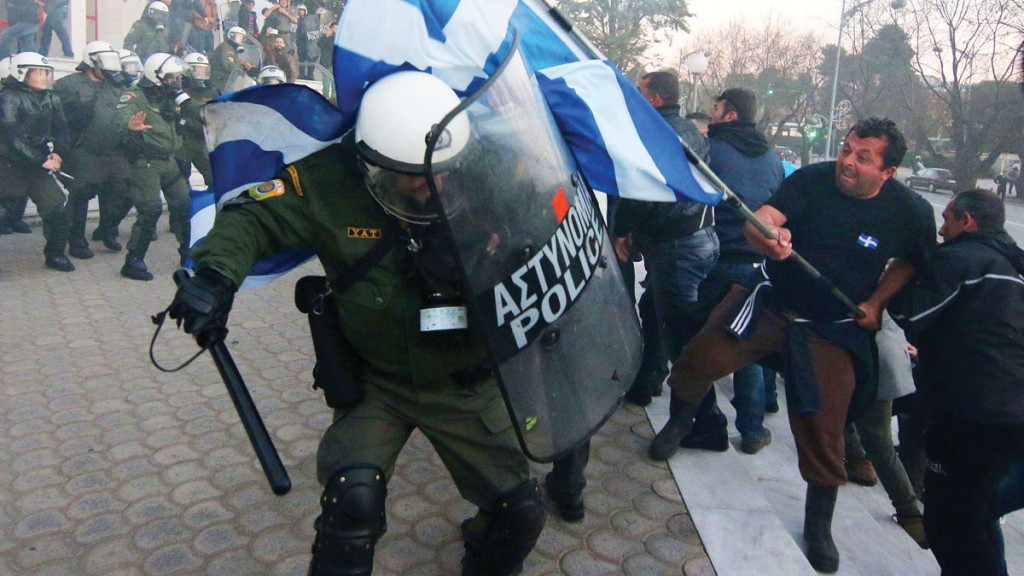
“It’s that time of the year again,” says Larry Elliott in The Guardian. Greece is running out of cash; there are violent protests in Athens against austerity measures; and eurozone finance ministers are gathering in Brussels to discuss what to do about it. At their meeting on Monday they opted, not for the first time, to put off the difficult decisions.
Ministers will convene again by 24 May to judge whether Greece can meet the terms of its third bailout package agreed last year. In order to receive this bailout, which amounts to €86bn, Greece is supposed to commit to achieving a primary budget surplus (before interest payments) of 3.5% of GDP.
But this is creating a growing rift between the Europeans and the International Monetary Fund (IMF). The IMF thinks there is no way Greece can manage a 3.5% of GDP primary surplus, and suggests a 1.5% surplus and a write-off of some of Greece’s debt instead. The overall debt pile is still worth 180% of GDP and the IMF thinks anything above 120% is unsustainable.
Without debt relief Greece is highly unlikely ever to get to grips with its borrowing. Long-term growth would help lower the debt-to-GDP ratio, but there is scant sign of it. The economy has shrunk by 25% in eight years, a fall equivalent to America’s during the Great Depression, and appears to have contracted again in the first quarter of 2016.
But concessions of this kind are “politically indigestible” for eurozone governments, says The Economist. This means the most likely outcome, “as always, is a fudge: an agreement that gives creditors just enough confidence to release the next slug of cash, without putting Greece’s finances on a sustainable footing”. Yet Britain’s referendum means the eurozone will have to “act with unaccustomed speed” in sorting this out, notes Elliott. Otherwise the issue will be “parked until after 23 June” and another “long, hot summer” will ensue.
Turkey: from bad to worse
“Turkey has a domestic terrorism problem, is mired in conflict with neighbours, and is involved in a war of words” with the EU over Syrian refugees, says Dimitra DeFotis in Barron’s. This hardly adds up to an enticing investment outlook, and last week’s events have made things worse. Prime Minister Ahmet Davutoglu has resigned after a spat with the country’s increasingly authoritarian president, Recep Tayyip Erdogan.
The Turkish lira slumped by 4% against the dollar and stocks kept falling; they have lost around 8% this month. The ruling Justice and Development Party is set to appoint a new leader, which could pave the way for early elections.
Turkey should be doing its utmost to attract money. Its current account deficit has hit almost 5% of GDP, and it needs foreign capital to plug this gap with the rest of the world. What’s more, much of the capital comes in the form of short-term flows such as foreign bank loans, which can turn tail quickly. Investors have been rattled by Erdogan’s tendency to put pressure on the central bank to lower interest rates to boost growth, and his gradual abandonment of market liberalism. Turkish assets look set to keep falling.